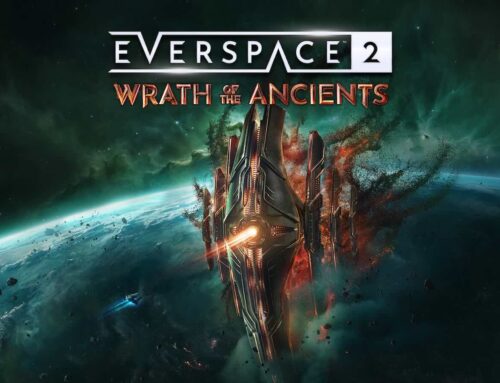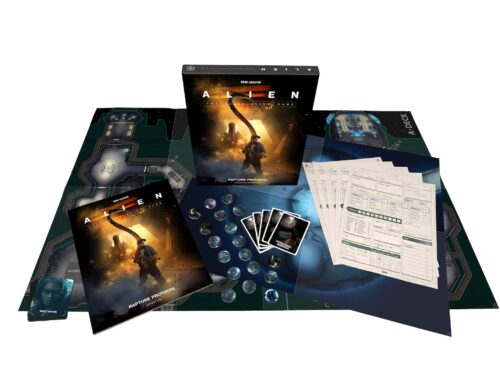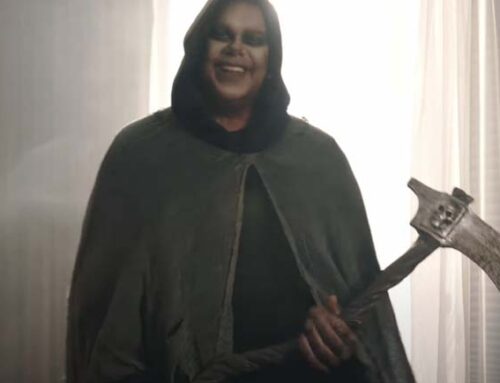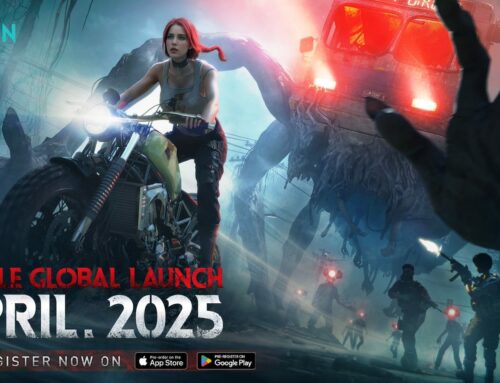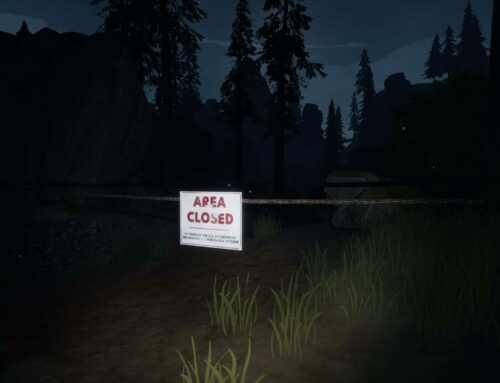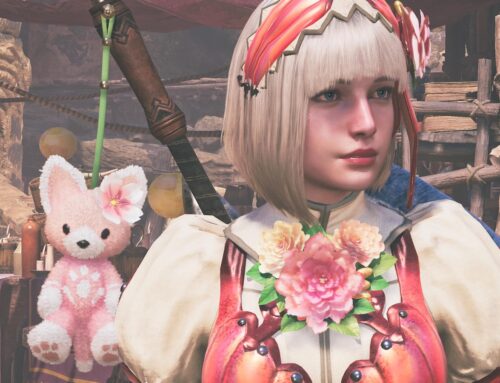I recently spoke with composer Min He whose latest work includes video games In Nightmare and The Sims 4 DLC, as well as feature film The Coldest City. Min spoke about how she was drawn to the entertainment industry, how she got to work on this latest project, and what sets her apart from others in her space. Also an orchestrator and pianist, Min is 5X HMMA-Nominated and based in Los Angeles, California. Keep reading to learn more about her musical inspirations for the video game and how she personally connected to the storyline.
Alix Kingray (AK): How did you get into this field, and what drew you to composing as a career?
Min He (MH): I grew up in a family where everyone loves music. My parents nurtured this passion by giving me a piano and a baby accordion when I was 5 years old. I started to study music and often found myself lost in spontaneous melodies on the piano. That was an early sign of my composition career. My grandfather also played an instrumental role; his love for video games, particularly the enchanting scores of Super Mario, resonated with me deeply. As I grew into my teenage years, surrounded by friends engrossed in the game of World of Warcraft, I became entranced by the captivating soundtracks. These experiences planted the seeds for my career aspiration to become a media composer for video games, films, and television.

AK: I’m interested to know more about your work on In Nightmare, a video game that you composed for. How did you start to work on this project and what was the collaboration like?
MH: My journey with In Nightmare began when I crossed paths with the game’s developer, Fan Yu, in 2019. He was familiar with my work and felt a connection to the intimate and evocative tones in my music. When he extended the invitation to compose for his new game—a title under the prestigious banner of Sony China Hero Projects—it was an opportunity I couldn’t resist. This initiative by Sony showcases a select number of console games from China, providing them with development support and a platform for global reach. It was a harmonious collaboration; Fan and I shared a dynamic synergy, exchanging ideas fluidly and respecting each other’s artistic input. Fan’s nuanced understanding of music greatly contributed to the project, enhancing the depth and detail of the composition process.
AK: What sets this project apart from others you’ve done throughout your career? Is there any personal connection you have to the story/plot?
MH: Indeed, there’s a poignant thread that ties me to In Nightmare. The narrative centers on a young boy grappling with loneliness and the turmoil of his parents’ separation—a theme that tugs at my heartstrings. His journey through nightmares and sleepwalking episodes evoked a deep sense of empathy in me. I aspired to compose music that would not just accompany his trials but also serve as a balm for his wounded spirit, empowering him to face the real world with newfound courage.

AK: In Nightmare is a horror-themed video game. What do you enjoy about working on darker/more ‘themed’ projects such as this? What musical opportunities do you have to really convey that scary feeling to players?
MH: Working on In Nightmare was special because it blends emotional depth with the thrills of a horror game. I find a lot of joy in striking a balance between calm and scary moments. For this soundtrack, I made sure to contrast these two extremes. As players progress through increasingly challenging levels, the music’s tension ramps up. Then, after a tough section, I introduce a heartfelt melody that offers a sense of release. This contrast isn’t just about making the game scarier; it helps players feel the full range of emotions the character goes through. Crafting scores for horror also allows me to experiment with atonal melodies, dissonant harmonies, and unconventional instruments, which all play pivotal roles in evoking a sense of dread and unease.
AK: What are some of your other favorite projects you’ve worked on beyond In Nightmare?
MH: I have been fortunate to work on many projects that I love in recent years. If you ask my favorite project that I worked on, I would probably say it is EA’s Sims4 DLC. I had such a blast writing Chinese traditional wedding music for it. And we recorded music with the finest Chinese instrumentalist in the world in China. What made this project a favorite was the creative freedom I was granted by the EA music team—a rare luxury that allowed me to compose instinctively and without external interference. This level of trust fostered a highly productive and gratifying collaborative atmosphere, with the end result being music that was universally embraced and enjoyed

AK: How has your personal taste/experience influenced your work on different projects you’ve done?
MH: I am originally from China, my hometown is a unique place where 13 minority groups coexist harmoniously. Growing up in such a diverse environment, I learned to respect and appreciate each culture’s distinctiveness, which has endowed me with a deeper understanding of people, compassion, and cognitive empathy in the realm of art. My hometown is also renowned for its rich art culture, music, and dance, which have greatly influenced my musical inspirations. As a composer, I bring a distinctive blend of experiences, cultural influences, and creative vision to this profession. This fusion of Eastern and Western elements sets my work apart, enabling me to create innovative and emotionally captivating music that transcends boundaries. And my background in both classical and contemporary genres allows me to craft versatile scores that cater to a wide range of projects, from symphonic to electronic, and everything in between.
AK: Your career is very diverse, what is it like composing more traditional classical music vs composing for a video game?
MH: It is a different experience. Composing for concerts and video games are two sides of the same coin, yet they offer distinct experiences. In a concert, the music itself is the journey, captivating the audience with a story told through melody and harmony. I have the freedom to express my own narrative through music. In contrast, composing for video games is an exhilarating journey into uncharted territories. It’s storytelling in real-time, where the music must adapt and evolve with the player’s experience. Both are rewarding in their own right, but video game scoring is particularly dynamic, often blending various musical styles to match the interactive nature of the medium.
AK: Finally, what do you have next that you’re excited to share with our readers, Min He?
MH: As for what’s on the horizon, I’m thrilled about several upcoming projects including 2 feature films and two video games. But without revealing too much, I can share that they involve innovative collaborations and will feature music that pushes creative boundaries. These projects are close to my heart, and I’m eager to unveil them when the time is right, probably 2024, stay tuned!

